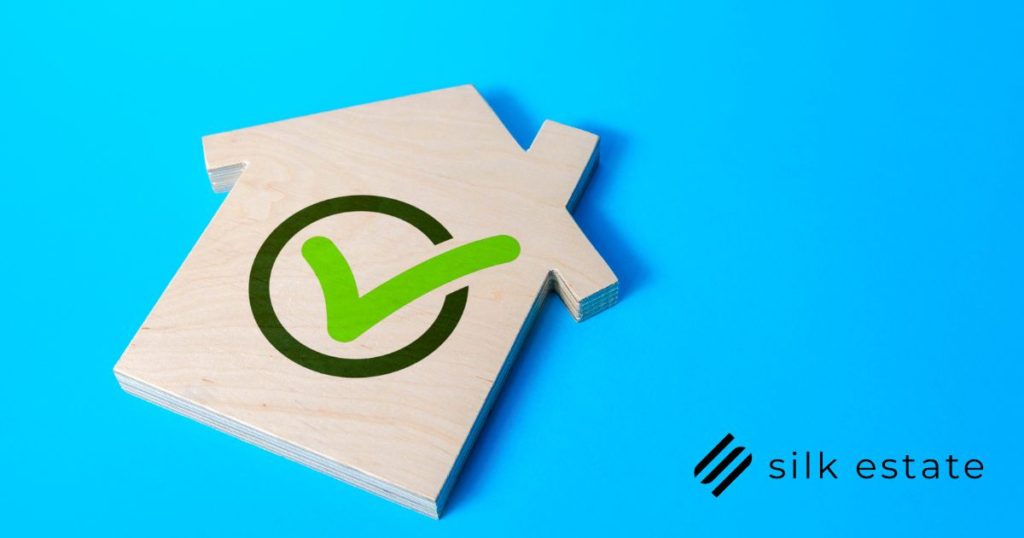You’re about to dive headfirst into Thailand’s vibrant housing market. It is a place where prices are as spicy as the cuisine, yet there’s a refreshing coolness to the regulations for foreign buyers. From understanding how your dollars convert to navigating buyer hotspots and price breakdowns, we’ve got you covered. So settle in, and let’s explore what it costs to buy a house in Thailand.
Key Takeaways
- Housing prices in Thailand have been steadily rising by 1-10% per year from 2012 to 2024.
- The most active foreign buyers in the property market of Thailand are citizens of China (45% in Q1 2024) and Russia (6.4%).
- Buyers can pay for real estate in Thailand using their bank account with US dollar to Thai baht bank conversion or through cryptocurrency.
- The average cost of a house in selected cities in Thailand ranges from $100,000 to $500,000, depending on the location and type of property.
Understanding the Real Estate Market in Thailand
You’re likely interested in the cost of houses in Thailand, so it’s important to understand that housing prices have been steadily rising by 1-10% per year since 2012 in Thailand. Even amidst a pandemic, there was no dip in nominal prices as developers innovatively set up remote sales and softened mortgage conditions to attract foreign buyers.
Now, you might wonder about buying property as a foreigner. Well, although foreigners can’t own land directly, there are legal routes for purchasing condos or residential properties through partnerships with Thai companies. This has led to an influx of foreign investors primarily from China and Russia, contributing further to the rise in prices.
Location significantly impacts house costs across different regions of Thailand, and the average house price can vary greatly. For instance, Bangkok and Phuket command higher real estate prices due to their urban appeal while rural areas may offer more affordable options. The type and size of property also influence the price along with proximity to amenities and age of construction, factors that can be crucial if you are looking for a property for sale in Thailand.
Impact of Currency Exchange on House Prices

It’s essential to consider the impact of currency exchange rates when assessing property prices, as fluctuations can significantly affect your purchasing power. The Thai baht’s relative stability against major currencies over the years is a crucial factor in shaping Thailand’s real estate market.
Here are four significant points you should take into account:
1. Currency Fluctuations: Exchange rates between your home currency and the Thai baht can drastically influence your buying capacity, especially for high-value properties.
2. Market Trends: Keep an eye on trends in both the property market and currency markets. They can offer valuable insights into when it might be most advantageous for you to buy.
3. Regional Differences: House prices may vary across different regions of Thailand due to factors such as demand, development rate, and local economy.
4. Legalities: Understand that foreigners cannot directly own land in Thailand but can purchase condos or apartments
Identifying the Popular Regions and Buyer Nationalities

When looking at popular regions for real estate in Thailand, you’ll find that Chinese investors are particularly drawn to Bangkok, while Russians favor the island of Phuket. These preferences aren’t random; they’re shaped by factors such as cultural familiarity, economic opportunities, and lifestyle preferences.
Bangkok’s allure lies in its bustling city life and thriving economy. Its high-end condos offer a taste of modern living mixed with traditional Thai culture. For Chinese investors who typically prefer urban environments and see property as an asset class, Bangkok is the perfect match.
On the other hand, Russians lean towards Phuket due to its serene beaches and relaxed coastal lifestyle. The tropical climate is similar to what they’d find in popular Russian vacation spots like Sochi or Crimea. This makes it ideal for holiday homes or retirement properties.
However, remember that foreigners can’t directly own land in Thailand. But don’t let this deter you! You can acquire freehold condominiums outright or hold other types of real estate through long-term leases or by setting up a Thai limited company.
Knowing these trends helps you understand where potential opportunities lie within Thailand’s vibrant property market.
Breakdown of Cost House Prices in Thailand

Let’s delve into the specifics of real estate prices in Thailand, where you’d find that quality properties often start from 100,000-140,000 US dollars. However, keep in mind that prices can fluctuate significantly depending on various factors.
1. Location: The cost of property varies drastically between rural and urban areas. Bangkok and Phuket are known for their high-end properties which can reach up to millions of US dollars.
2. Type of Property: Condominiums are generally more affordable than detached houses or villas with land due to the legal restrictions on foreign land ownership.
3. Age and Condition: New builds tend to be pricier than older ones unless extensive renovations have been made.
4. Amenities and Facilities: Properties with access to facilities like gyms, pools, and security services or located close to shopping centers will fetch higher prices.
Remember that as a foreigner, you’re limited by Thai laws which prevent you from owning land directly; however, there are legal ways around it such as setting up a Limited Company or investing in leasehold properties or condominiums where foreigners can own up to 49% of the total area of all units sold on a freehold basis. Always do your homework before buying!
A Look at Property House Prices in Phuket

You’re likely to find that residential property prices in Phuket for 2024 average between 1,800-4,200 US United States dollars per square meter. This is influenced by several factors such as location, size, and the type of property. Prime areas like Patong or Kata Beach in Phuket command higher prices compared to less touristy regions.
You must understand that while foreigners can’t directly own land in Thailand, there are legal ways around this like buying through a limited company or leasing land. If you prefer an apartment or condo, the law allows foreign ownership up to 49% of the total space of a condominium building.
Looking at market trends, despite the pandemic’s impact on the tourism industry which includes real estate sales in places like Phuket heavily reliant on foreign buyers, there has been no significant drop in housing prices. This resilience reflects developers’ innovative strategies and flexibility including offering virtual tours and softening mortgage conditions.
Lastly, remember that fluctuations in currency exchange rates could affect your purchasing power especially if you’re buying from abroad so it’s wise to keep an eye out for these changes.
Key Factors Influencing The Cost Of House Prices in Thailand
It’s crucial to understand that several aspects, such as location, type, and size of the property, amenities around and within it, and its age, significantly influence real estate prices in Thailand.
1. Location: Properties in prime locations like Bangkok and Phuket are priced higher than those in rural areas.
2. Property Type & Size: Larger properties with more bedrooms or commercial facilities demand a higher price, adding to the cost in Thailand.
3. Cost of living: The cost of living in Thailand is an important factor to consider before you move to Thailand. will also play a pivotal role long-term in Thai property prices as the more people earn and have disposable income the more investment there is for buying property.
4. Amenities: Homes fitted with modern conveniences or found within gated communities boasting numerous facilities will cost you more.
5. Age of Property: Newer constructions usually fetch a higher price due to fewer maintenance needs, which is often reflected in the average house price in Thailand.
You can’t ignore market trends either while considering these factors. The Thai property market has been bullish with consistent growth over the years, even during global economic downturns. Also remember, foreign ownership laws restrict direct land ownership – but you’re free to own condos outright.
Regulations for Foreigners Buying Property in Thailand

Foreigners can’t directly own land in Thailand, but they’re allowed to purchase condos and apartments. However, there are restrictions. Foreigners are only allowed to occupy up to 49% of the total floor space of a condominium complex, so consulting a real estate agency is highly recommended. It seems tricky, but don’t let this discourage you.
Thailand’s property market is vibrant with opportunities for savvy investors. Cities like Bangkok and Phuket are hotspots for investors. Property prices in these areas are influenced by many factors such as location, access to amenities, and quality of local infrastructure such as transport and modernization.
For instance, beachfront properties in Phuket command higher prices due to their prime location and stunning sea views. In contrast, suburban homes in Bangkok may offer better value for money given their larger living spaces compared to the city center.
The Thai government has also implemented policies aimed at attracting foreign investment into the country’s real estate market. As a result, certain areas have been designated as special economic zones where foreigners enjoy greater flexibility in property ownership, making it easier to find property for sale in Thailand.
Before making any investments though, it’s crucial to do your homework. Engage a reputable lawyer who’s familiar with Thai real estate law – this way you’ll navigate the complexities of property acquisition smoothly and legally while maximizing your investment potential in Thailand’s thriving housing market.
Comparing the Average House Costs in Major Thai Cities
Let’s delve into the average price tags for properties in major Thai cities, shall we?
1. Bangkok: As Thailand’s bustling capital, Bangkok boasts a vibrant real estate market. Condominiums tend to be the popular choice here due to foreign ownership laws. You’re looking at an average of $200,000 for a decent condo.
2. Phuket: Famed for its stunning beaches and thriving ex-pat community, Phuket offers attractive options for residential properties. Expect to spend around $150,000 on an average condo or up to half a million dollars if you fancy owning a house.
3. Pattaya: Known for its beach resorts, you can easily find a home in Thailand here. Known as a resort city, Pattaya has plenty of condominiums perfect for holiday homes or investment properties, which you can find through a real estate agent. A one-bedroom apartment can cost anywhere between $100,000 and $200,000 for a reasonably sized property.
4. Chiang Mai: If you prefer cooler climates and mountainous views, Chiang Mai could be your ideal location. The cost of property here is relatively lower with condos available from around $60,000.
Remember though: these are just averages; prices can fluctuate based on factors like location within the city and property specifications. Always do your research before making any commitments!
Spotlight on Specific Housing Options in Phuket
We’re now going to focus on specific housing options available in Phuket, a popular region for investors. This island is known for its stunning beaches and vibrant nightlife, making it a hot spot for both tourists and long-term residents.
The condo market here is particularly accessible to foreigners because of Thailand’s property laws that allow foreign ownership. Prices can start from USD 100,000 and can go up into the millions of US dollars depending on location and luxury level.
If you’re looking at villas or houses, it gets trickier as Thai laws restrict direct foreign land ownership. However, there are ways around this such as leasehold agreements or setting up a Thai Limited Company.
Now let’s talk about locations within Phuket. Patong Beach is popular due to its central location and bustling lifestyle but prices here are higher compared to less-developed areas like Rawai or Nai Harn.
Remember that property values fluctuate according to various factors such as proximity to amenities, view quality, and construction standards among others. So always do your research or consult with an expert before investing in Phuket properties.
The Cost of Building a House in Thailand: Factors to Consider.

You’re probably curious about the expenses involved in constructing a residential property in this Southeast Asian country. Building a house in Thailand isn’t as straightforward as it could be due to several factors affecting the final cost.
1. Location of property:
Construction costs can vary significantly between urban and rural areas, with land prices typically higher in cities like Bangkok and Phuket.
2. Building materials used:
The quality of materials used greatly influences the total expense. Imported tiles, hardwood flooring, or high-end appliances will undoubtedly increase your budget.
3. The Type of design:
Unique and modern designs can significantly impact the price of a Thailand property. A complex design with unique features requires more labor and resources, thereby escalating costs, which is a common consideration for Thailand property developments.
4. Currency fluctuation in the market:
With international transactions, exchange rate fluctuations can affect your overall budget. A significant move in one currency in a few percent could increase or decrease the property purchase cost by 1-5% saving you or costing you more money.
Understanding these elements is crucial when planning to build a house in Thailand. Being aware of market trends and legalities around property ownership will also give you an edge when navigating this process. Whether you’re eyeing an investment opportunity or planning a dream home for retirement, knowledge is key to making informed decisions in Thailand’s vibrant real estate sector.
Ready to buy property in Thailand?
Contact us today & start your search for the perfect home.




